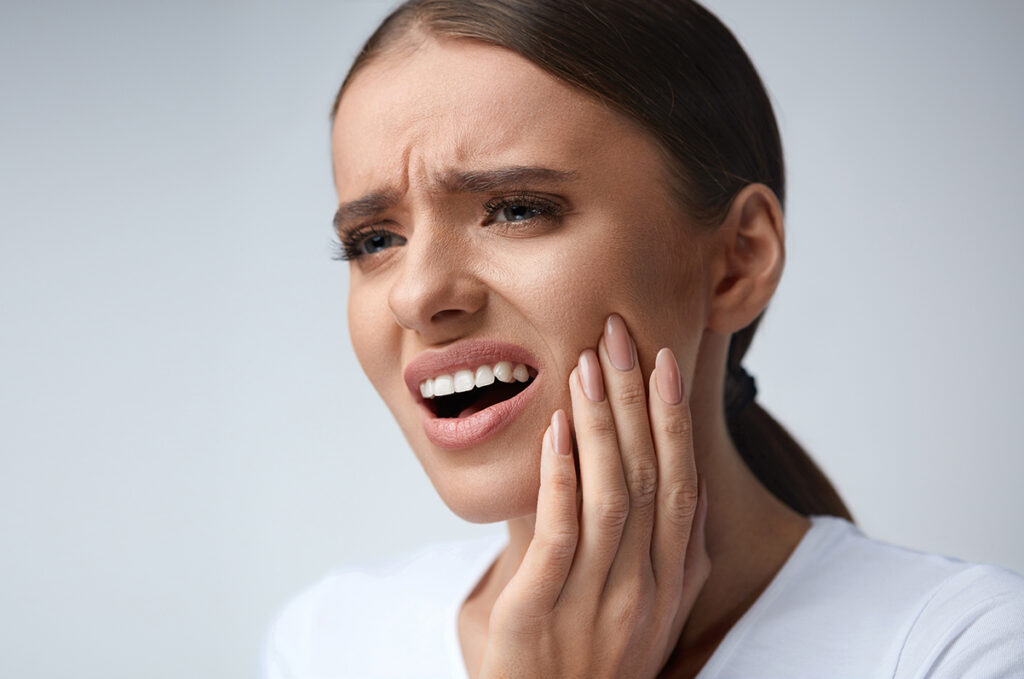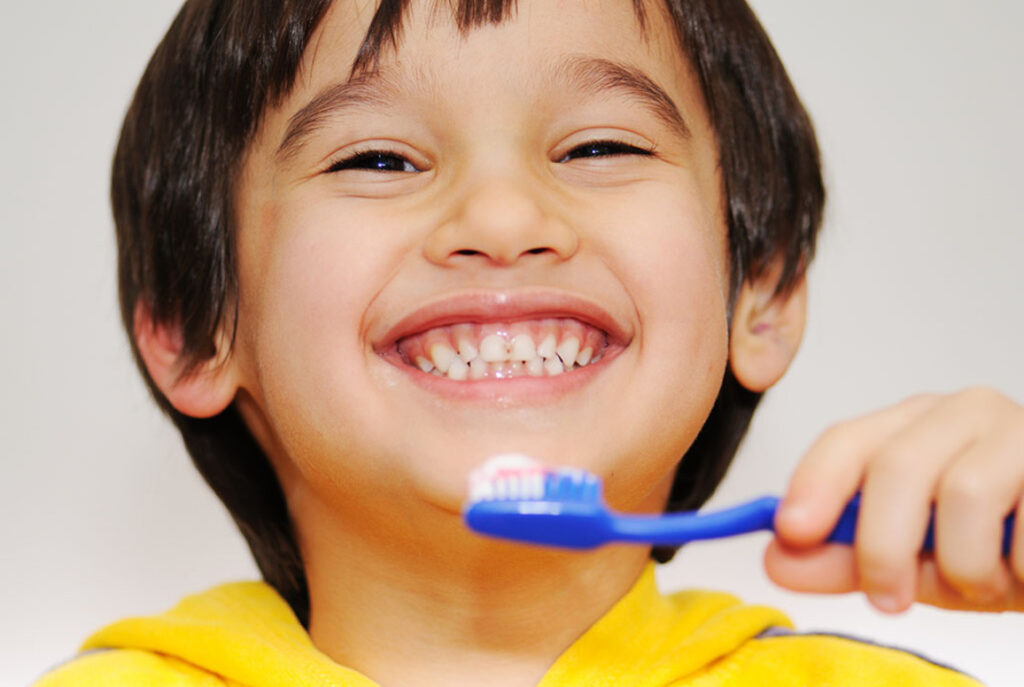Many times we face toothache having different levels of pain but seldom do we know the exact reason behind that pain. We tend to ignore if the pain is bearable or pop a painkiller just to skip any required dental visit.
How does toothache?
Teeth are such an efficacious organ that is conveniently used or overused according to human comfort. If not taken care of properly or having the wrong food will easily damage the tooth structure which will lead to tooth pain eventually.
The tooth structure consists of three layers. First, the outermost layer which is the hardest tissue in the body called enamel, and then the second layer which is called dentin, and then the innermost part that is highly innervated containing vital tooth components called the pulp.
What causes damage to the tooth?
- Excess sugar intake
- Excess acidic drink
- Excessive force on the tooth can cause damage to the teeth.
- Habits like tobacco chewing, smoking, alcohol intake, beetle nut chewing, etc
- Improper brushing habits and poor oral hygiene
What are the ways in which a tooth can be damaged?
Dental Caries
Dental caries is the most common dental issue seen in every other individual. Excessive sugar intake, saliva, and tooth (host) create the perfect environment for
bacteria to build up and demineralize the tooth structure which leads to the formation of a carious white and later black lesion. As caries progresses deeper
inside the teeth causing inflammation to pulp tissue which in turn responds with pain. Management of dental caries depends on the severity of the damage or
destruction caused to the tooth.
If the caries is not approaching the nerve of the tooth, damage can be managed by excavating the cavity and filling it with a restorative filling material.
If caries has not yet reached the nerves of the tooth and is just approaching then an additional medicament is placed as intermediate material between the tooth and the final filling material.
If caries has already approached the nerve of the tooth, it is necessary to remove the entire pulp tissue containing the nerve and replace it with a material called
gutta-percha in a permanent tooth, which is called root canal treatment, and calcium hydroxide in children which is called pulpectomy.
Attrition
Attrition is the wearing away of the outer layer of the tooth is called enamel over a period of time due to excessive forces put upon the tooth due to grinding or
clenching of the teeth. It usually occurs at night while asleep and the reason behind this can simply be a habit or can occur due to stress which is termed as bruxism. Symptoms of pain and sensitivity usually start when there is severe wearing away of the tooth structure.
Bruxism
Bruxism is usually treated with mouth guards. These are custom-made for every individual patient by your dentist. Mouth guards reduce unnecessary tooth to tooth contact which in turn reduces excessive force put upon the tooth.
Abrasion
Abrasion is the mechanical wearing of enamel that is caused by aggressive brushing habits. Depression or grove formation can be seen at the junction of gums
and teeth. The use of hard bristle brushes and improper brushing techniques put an excessive amount of force onto the teeth daily eventually leading to the wearing away of the outer enamel tooth structure. Attrition and abrasion over time might lead to sensitivity type of pain.
Management
A restorative material i.e. cement is placed in the area of damage such as glass ionomer cement (GIC) or a resin-based material ie composite is used. The patient is
asked to change his/her brushing techniques.
Erosion
Tooth erosion is the loss of the surface of the outer layer of the teeth that is caused due to acidic fruits or fruit drinks such as lemon, oranges, etc, or acidic drinks such as alcohol ( wine), and vinegar may cause the wearing of enamel due to excess contact with acidic food/drink,
Acid reflux (GERD) gastroesophageal reflux disease causes regurgitation bringing the stomach acid up in the mouth causing acid-to-tooth contact.
Management –
*Diet change,
*Using fluoridated toothpaste,
*Treating any underlying acidity issues with proper medication.
*Topical fluoride application
Fracture
Fall or accident may cause trauma to the teeth depending on the blow to the teeth. The most commonly affected teeth are the upper front teeth. biting on a hard object or opening a metal bottle cap with teeth might lead to a sudden fracture of the tooth. symptoms are sensitivity or pain while chewing.
Management:– treatment can be decided on the level of damage caused to the tooth. small tooth fractures can be managed with a tooth filling or by veneers
/crown. If the fracture continues through the entire tooth vertically, the tooth may have to be removed.
Recession (exposed root)
Recession is receding gums that expose the root portion of the tooth which causes teeth sensitivity and pain.
How does a recession occur?
*Periodontal disease causes inflammation of the gums.
*Mechanical trauma is caused by to long-term use of hard bristle brushes and improper brushing techniques.
*Inadequate brushing or the low maintenance of oral hygiene leads to plaque
*accumulation which leads to gingival recession.
*Underlying bone loss
In this case, gum-rebuilding surgeries can be useful.
Pain due to the third molar
When the eruption of the third molar is obstructed by bone or adjacent teeth might cause mild to severe pain in the entire mouth which might also radiate to both jaws, ears, and head. The third molar erupting in the wrong direction or alignment can also cause damage to the surrounding tooth.
Management:– third molar extraction (Disimpaction)
If you have any problems related to gums or teeth, please visit Pathak Dental Clinic.
Frequently Asked Questions (FAQ)
1.What is the quickest way to stop tooth pain?
Use saltwater rinse, clove oil, or a cold compress for temporary relief but visit a dentist immediately for proper treatment.
2. What causes severe toothache?
Tooth decay, gum infection, cracked teeth, wisdom teeth issues, or teeth grinding can lead to severe tooth pain.
3. When should I visit a dentist for tooth pain?
If pain lasts more than 24–48 hours, gets worse, or comes with swelling, sensitivity, or fever, consult a dentist right away.
4.Can tooth pain go away on its own?
No. Painkillers may reduce symptoms temporarily, but the underlying dental problem will worsen without treatment.
5. What is the best treatment for tooth decay pain?
Depending on damage, treatment may include cavity filling, fluoride application, root canal treatment, or a dental crown.
6. How to avoid toothache in the future?
Maintain oral hygiene, reduce sugary foods, brush twice daily, floss regularly, and schedule dental checkups every 6 months.
7. Can wisdom teeth cause jaw and ear pain?
Yes. Impacted or misaligned wisdom teeth often radiate pain to the jaw, ears, and head — extraction may be required.
8. Which is the best dental clinic in Pune for tooth pain treatment?
Pathak Dental Clinic in Pune offers expert dental care, advanced treatments, and emergency services for tooth pain relief.
Call Now: +91 9762126132
Find the clinic here: Get directions
Address: 11/11 Akurdi Chikhli Road, Near Dwarka Collection, Kasturi market, Sambhaji Nagar, Thermax Chowk, Below Nutan Jewellers, Chinchwad, Pune, Pimpri-Chinchwad, Maharashtra 411019




